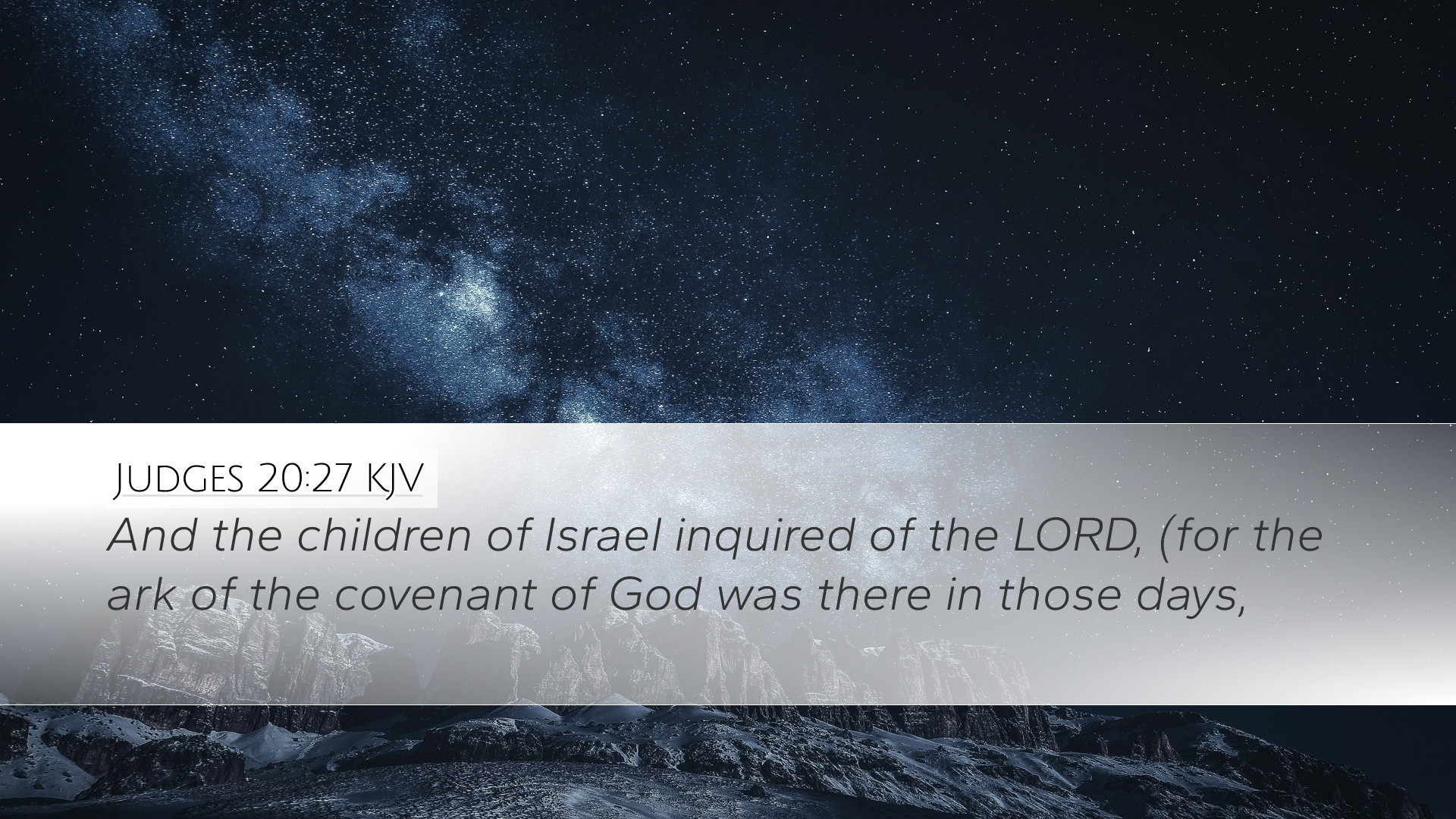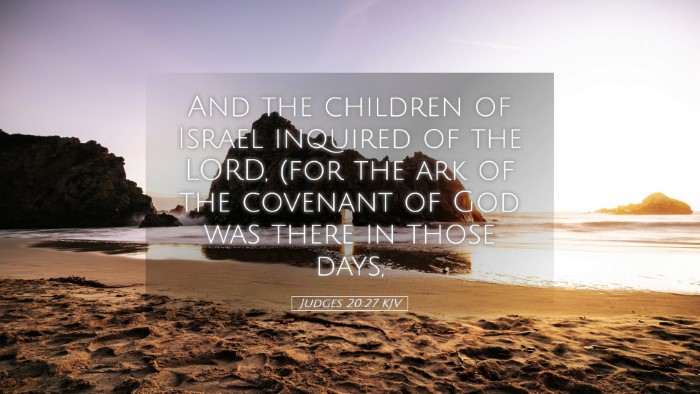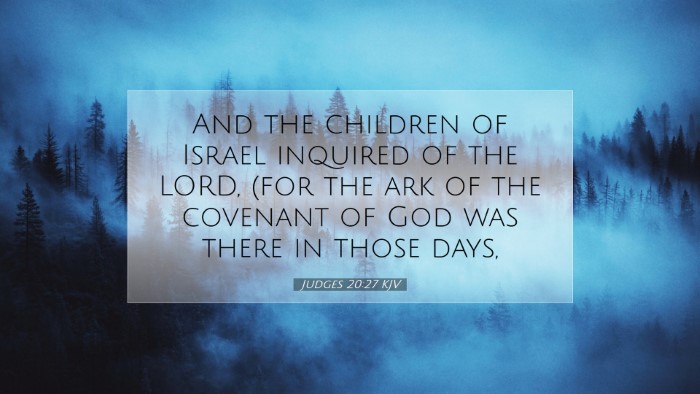Bible Commentary on Judges 20:27
Judges 20:27 reads: "And the children of Israel enquired of the LORD, for the ark of the covenant of God was there in those days." This verse marks a pivotal moment in the narrative of the Judges, underscoring the deep reliance of Israel on divine guidance during a time of national crisis.
Contextual Background
This verse is situated in a narrative of conflict where the tribe of Benjamin is engaged in civil war against the other tribes of Israel. The events leading up to this moment illustrate the moral decline and societal chaos that characterized the time of the Judges.
The Role of the Ark of the Covenant
The mention of the ark signifies God's presence among His people, serving as a crucial reminder of His covenantal relationship with Israel. The Ark was not merely a religious artifact but a symbol of divine authority and guidance. In this context, we see how the Israelites sought the Lord's will through the proper channels.
Insights from Public Domain Commentaries
-
Matthew Henry:
Henry emphasizes the Israelites’ spiritual posture in this crisis. He notes that their inquiry reflects a deep desire to reconnect with God amidst turmoil. Henry states, "They were conscious of their own weakness and the importance of seeking divine direction for their next steps." This illustrates the necessity of prayer and divine consultation in times of conflict.
-
Albert Barnes:
Barnes highlights the gravity of their situation, noting the tragedy of civil strife within the nation. He points out that the inquiry to the Lord reveals an acknowledgment of their need for guidance. Barnes elaborates, "The presence of the Ark among them indicates that even in the depths of moral decay, there is hope for restoration through sincere seeking of God." This perspective is vital for understanding the dynamic between divine judgment and mercy.
-
Adam Clarke:
Clarke provides insights on the significance of the Ark in connection with the inquiries made by the Israelites. He argues, "This act of seeking the Lord was a significant move towards national repentance." Clarke suggests that the Israelites’ questioning of God represents a turning point—a flicker of hope amidst widespread corruption. This commentary expresses both the seriousness of their plight and God's readiness to respond.
Theological Implications
The message in Judges 20:27 echoes through centuries, offering rich theological insights:
-
The Need for Divine Guidance:
In moments of uncertainty and moral ambiguity, the proper recourse for believers is to seek God's direction. This principle is foundational not just for the Israelites but for all of God’s people throughout history.
-
God's Presence Among His People:
The Ark of the Covenant represents God's physical presence and His willingness to guide His people. For modern believers, this translates into the Holy Spirit's presence, reminding them that God is near and actively involved in their lives.
-
The Response to Crisis:
Judges 20:27 illustrates that trials and tribulations can lead to spiritual awakening when they prompt individuals and communities to seek divine input and intervention.
Application for Today's Believers
The lessons drawn from this verse extend into contemporary faith practice:
-
Prayer and Seeking God:
Just as the Israelites sought God's will, modern believers are called to bring their decisions before God in prayer. This is an intimate act of faith, acknowledging human limitations and the need for divine insight.
-
Collective Responsibility:
The tribal nature of Israel’s inquiry emphasizes the importance of community in faith. Churches and congregations should collectively seek God’s guidance through prayer, fostering unity and shared purpose.
-
Faith Amidst Crisis:
Judges 20:27 encourages believers to maintain faith even in turbulent times. Rather than succumbing to despair, the act of seeking God can lead to restoration and healing.
Conclusion
Judges 20:27 serves as a powerful reminder of the importance of divine inquiry in challenging times. The commentaries from Henry, Barnes, and Clarke enrich our understanding of this verse, emphasizing the themes of repentance, guidance, and the necessity of communal seeking of God. For pastors, students, theologians, and scholars, this verse encapsulates key biblical principles and calls for an introspective approach to understanding one's relationship with God.


